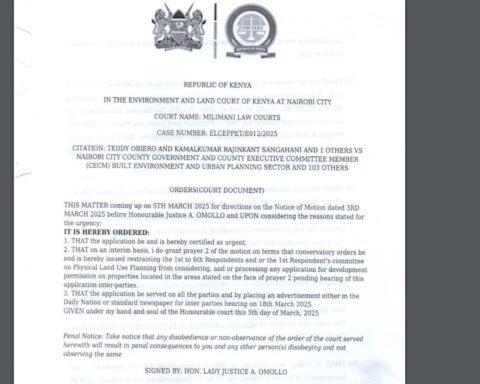In a bold and unprecedented move, Ibrahim Traore has withdrawn the mining licenses for all foreign mining companies in Burkina Faso. This decision marks a significant shift in the country’s approach to its natural resources, aiming to prioritize national interests over foreign exploitation.
Burkina Faso’s Mining Industry
Historical Context
Burkina Faso’s mining industry has long been dominated by foreign companies, particularly from the West. These companies have played a crucial role in the extraction of gold and other valuable minerals, contributing significantly to the country’s GDP.
Role of Foreign Mining Companies
Foreign mining companies have brought in technology, expertise, and capital that have been essential for large-scale mining operations. However, their presence has also been criticized for not sufficiently benefiting the local population and economy.
Ibrahim Traore’s Decision
Details of the Withdrawal of Licenses
Traore’s decision involves the immediate cancellation of all existing licenses held by foreign mining companies. This move effectively halts their operations and nullifies their rights to continue mining activities in the country.
Reasons Behind the Decision
The primary reason behind this decision is to reclaim national control over Burkina Faso’s natural resources. Traore aims to ensure that the wealth generated from mining benefits the local economy and population rather than flowing out to foreign entities.
Impact on Foreign Mining Companies
Immediate Effects on Operations
The immediate effect is the cessation of mining activities by foreign companies. This abrupt halt will likely lead to significant financial losses and operational disruptions for these entities.
Long-term Consequences
In the long term, this decision may deter future foreign investment in Burkina Faso’s mining sector. Companies may view the country as a risky investment due to the potential for abrupt policy changes.
Economic Implications for Burkina Faso
Potential Benefits and Drawbacks
On the one hand, this move could lead to greater national control and revenue from mining activities. On the other hand, there is a risk of reduced foreign investment, which could impact the overall economic growth.
Impact on the National Economy
If managed well, nationalizing the mining industry could lead to increased revenue for the government, which could be reinvested into other sectors of the economy. However, the transition period may see a dip in productivity and revenue as new systems are put in place.
Political Reactions
Domestic Political Response
Domestically, this decision may be met with mixed reactions. While it could garner support from those who believe in national sovereignty over resources, it may face criticism from those concerned about the economic repercussions.
International Political Response
Internationally, this move is likely to cause tension between Burkina Faso and the countries whose companies are affected. Diplomatic relations may be strained, and there could be pressure from foreign governments to reverse the decision.
Environmental Considerations
Potential Environmental Benefits
Reducing the number of foreign-operated mines could lead to better environmental practices, as the government may implement stricter regulations to protect the environment.
Historical Environmental Impact of Foreign Mining
Foreign mining operations have often been criticized for their environmental impact, including deforestation, water pollution, and habitat destruction. National control could lead to more sustainable mining practices.
Social Implications
Effects on Local Communities
The decision could have significant social implications. If managed correctly, it could lead to more job opportunities and better conditions for local workers. However, the transition may cause temporary job losses and economic instability.
Employment and Local Business Impact
Local businesses that support mining operations may also be affected. The government will need to ensure that these businesses are supported during the transition to national control.
Future of Mining in Burkina Faso
Potential for Local Mining Companies
This decision opens up opportunities for local mining companies to take over operations previously controlled by foreign entities. This could lead to the growth of a robust local mining industry.
Government Plans and Policies
The government will need to develop clear plans and policies to manage the transition and ensure the long-term success of the nationalized mining sector.
Global Mining Industry Reactions
Reactions from Other Mining Nations
Other mining nations will be closely watching Burkina Faso’s actions. This move could set a precedent for other resource-rich countries considering similar measures.
Impact on Global Mining Strategies
Global mining companies may need to reassess their strategies and risk assessments when investing in countries with significant natural resources.
Legal Ramifications
Potential Legal Challenges
Foreign companies affected by the decision may pursue legal action against Burkina Faso, seeking compensation for their lost investments and operations.
Compliance with International Law
The government will need to navigate complex international laws and agreements to avoid potential sanctions or legal disputes.
Historical Precedents
Similar Actions in Other Countries
There have been similar actions in other countries, such as Venezuela and Zimbabwe, where governments have taken control of foreign-operated industries. The outcomes of these actions have varied, providing valuable lessons for Burkina Faso.
Lessons Learned from Past Examples
Learning from past examples, Burkina Faso can develop strategies to mitigate risks and ensure a smooth transition to national control of its mining industry.
Prospects for Foreign Investment
Future of Foreign Investment in Burkina Faso
While the decision may deter some investors, it also presents an opportunity for Burkina Faso to attract investment in other sectors, diversifying its economy.
Attracting Alternative Investors
The government could focus on attracting investors who are willing to work within the new framework and contribute to the country’s long-term development goals.
Strategies for Economic Diversification
Reducing Dependency on Mining
Burkina Faso can use this opportunity to reduce its dependency on mining and develop other sectors of the economy, such as agriculture, tourism, and manufacturing.
Exploring Other Economic Sectors
Investing in other sectors will not only diversify the economy but also create new job opportunities and reduce the economic risks associated with reliance on a single industry. Ibrahim Traore’s decision to withdraw foreign mining licenses marks a significant shift in Burkina Faso’s approach to its natural resources. While this move presents challenges, it also offers opportunities for greater national control, economic diversification, and sustainable development. The success of this decision will depend on careful management and the implementation of effective policies to ensure a smooth transition and long-term benefits for the country.
FAQs
What led to the withdrawal of foreign mining licenses?
The decision was driven by the desire to reclaim national control over Burkina Faso’s natural resources and ensure that the wealth generated from mining benefits the local economy and population.
How will this decision impact Burkina Faso’s economy?
While there may be short-term economic challenges, the decision could lead to increased national revenue from mining and economic diversification if managed well.
What are the potential environmental benefits?
National control over mining could lead to stricter environmental regulations and more sustainable mining practices, reducing the environmental impact of mining operations.
How have foreign companies reacted?
Foreign companies are likely to experience significant financial losses and operational disruptions. There may also be potential legal challenges against the decision.
What are the future plans for the mining industry in Burkina Faso?
The government aims to develop a robust local mining industry and implement policies to ensure the long-term success and sustainability of the nationalized mining sector.














